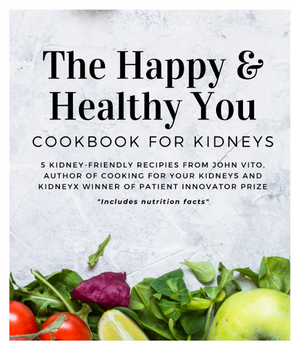Gut-Based Uremia Therapy : In vitro R&D Investigations of an Oral Probiotic Microbial Formulation with the Aid of a Simulated Human Intestinal Microbial Ecosystem (SHIME) Biochemical Reactor
Beena Patel, Ph.D.1, Olga Zelenaia, Ph.D.1, Rahul Dheer, B.S.1, Natarajan Ranganathan, Ph.D.1, Tom Van de Wiele, Ph.D.2, Willy Verstraete, Ph.D.2, Eli A. Friedman, M.D.3 1
Kibow Biotech, Inc. Philadelphia, USA, 2Ghent State University, Ghent, Belgium, 3Downstate Medical Center, Brooklyn, USA.
International Society of Nephrology 2004 Conference on Prevention of Progression of Renal Disease – Poster #72110
Chronic Kidney Disease (CKD) affects more than 200 million patients worldwide. It is characterized by elevated blood levels of several uremic metabolites. The increased concentration of uremic metabolites circulating in the blood promotes a passive diffusion across the intestineal cell wall which permeates into the large bowel ranges from 1011 to 1012 Colony Forming Units (CFU) per gram of colonic content. We are developing an orally consumable dietary supplement microbial probiotic product formulation which is specifically targeted to catabolize and remove several surrogate uremic toxins such as urea, creatinine, uric acid and possibly others. The microbial formulation was made by a combination of specifically screened, selected and cultured probiotics (microbes present in the commonly found fermented foods).
This oral product formulation is made from a specific combination of three freeze dried microbial species cultures – Streptococcus thermophilus (St) KB19 strain 1011, Lactobacillus acidophilus (La) NCFM strain 109, and Bifidobacterium longum (Bi) Gelda strain 109. This microbial formulation was introduced into an equilibrated and stabilized SHIME biochemical reactor (a system mimicking the human intestinal digestive system). This investigation consisted of three periods lasting of about ten weeks. Several data on the biochemical parameters such as the concentration of various uremic toxins , short chain fatty acids (SCFAs) and the overall microflora changes were evaluated and analyzedperform their beneficial effects. Capsulation of freeze dried cells protects the cells during storage condition. The capsulation of freeze dried bacteria seems to offer a more effective way of delivering large numbers of viable cells to the colon as compared to the frozen food format as a vector.
La and Bl demonstrates several beneficial effects such as increased proteolytic function, increased levels of SCFAs (propionic and butyric), disappearance of added creatinine (13.6mg/dl) and uric acid (8.3mg/dl) during their passage through the ascending and transverse colon. However the previously observed urea catabolizing characteristics of St was not observed in these investigations. These overhaul positive data indicates a suitable combination of probiotics formulation may be suitable for oral gut based uremia therapy. However, the urea catabolizing effects of St KB19 may need to b dosed independently or substituted with another compatible St strain..


